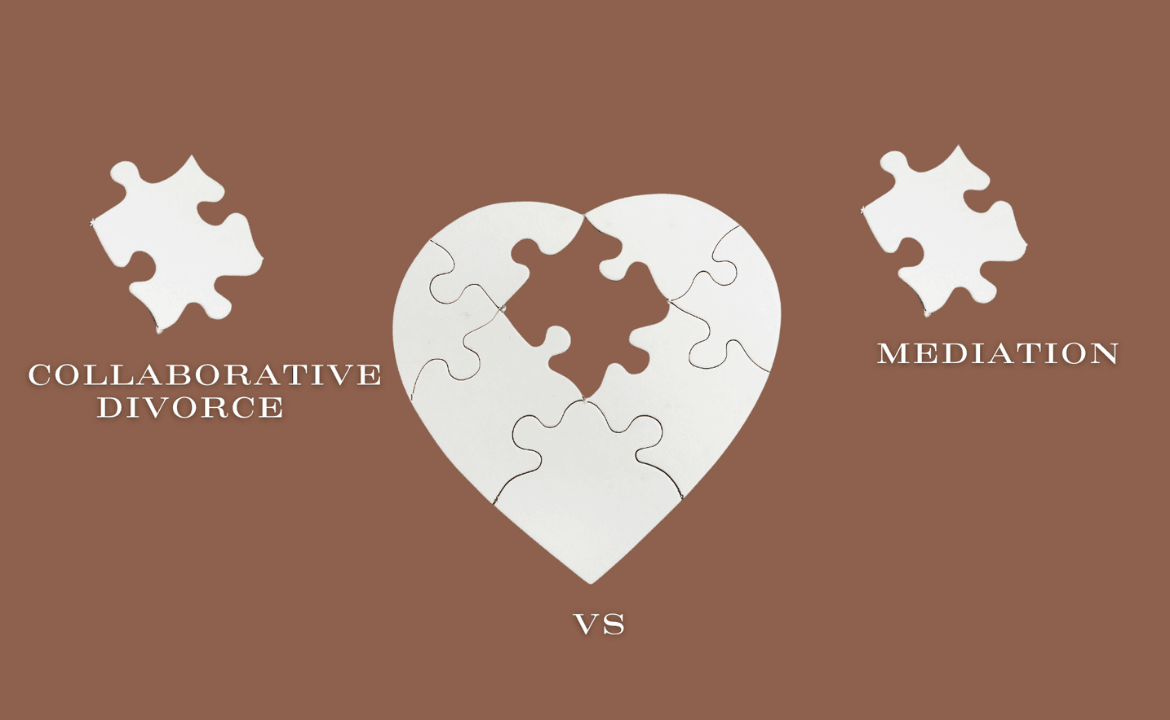If you are going through the end of your marriage and want to know what impact cheating might have on reaching a fair and amicable divorce settlement, this article will answer most of your questions.
It will also cover the emotional and the life-changing practical implications of assigning fault for a failed marriage and its impact on resolving important divorce issues between the parties through mediation or collaborative divorce.
Although divorce laws vary by state, and no-fault divorce statutes are common, the moral and emotional consequences of cheating can play a profound role in negotiating aspects of property division, spousal support, child custody, and support arrangements.
Legal Framework
No-Fault vs. Fault-Based Divorce
The main difference between no-fault and fault-based divorce is the degree to which, if any, one spouse needs to prove the other’s wrongdoing to get a divorce.
Cheating on one’s spouse has long been one of the primary reasons for the marriage breakdown.
Let’s first cover the differences between no-fault and fault-based divorce.
No-Fault Divorce:
In a no-fault divorce, neither party must prove that the other spouse was at fault for the marriage’s failure. Instead, under no-fault, the couple can choose to end the marriage by simply citing irreconcilable differences.
Almost all states in the U.S. have adopted no-fault divorce laws, which generally streamline the process and reduce the need for contentious and scorched earth court battles.
Fault-Based Divorce:
In contrast, a fault-based divorce requires one spouse to prove that the other’s misconduct led to the failure of the marriage.
While adultery has been cited as the most common ground for fault-based divorces, other grounds for divorce include:
Proving fault can complicate and prolong the divorce process and will likely impact the settlement. For instance, adultery may influence the division of assets or the awarding of alimony in states that consider fault.
Infidelity’s impact on divorce varies by state. In no-fault states, it can affect divorce terms such as alimony, but it is not considered legal grounds for divorce.
In fault-based states, proving infidelity may lead to better outcomes for the non-cheating spouse, including influencing issues related to property division, spousal support, and, as we shall see, even child custody.
This is why parties considering a divorce should seek expert legal advice to fully understand their state laws before filing for divorce – and to know the questions you should ask a divorce lawyer before retaining one.
Legal Tip
We now turn to the legal framework involving the differences between community property and equitable distribution states and the impact infidelity may have on these systems of property distribution.
Impact of Adultery on Property Division
General Rules for Property Division in Divorce
State law controls property division in a divorce, which typically follows either the community property or equitable distribution approach to the division of marital property.
- Community Property States: In community property states, all marital property—meaning assets acquired during the marriage—is considered jointly owned and is usually divided equally between the spouses. Separate property, on the other hand, is assets acquired before marriage or through inheritance and gifts that remain with the original owner.
- Equitable Distribution States: In equitable distribution states, marital property is divided in a manner deemed fair and equitable – but not necessarily equal.

How Cheating Can Influence the Distribution of Assets
The impact of cheating on the distribution of assets varies based on state laws, particularly whether the state follows a no-fault or fault-based approach to divorce.
- No-Fault States: While the courts may not consider infidelity a significant factor in property division, it might still play an indirect role. For example, suppose the cheating spouse used marital funds to support an affair. In that case, the court may compensate the non-cheating spouse by awarding them a more significant portion of the marital estate.
- Fault-Based States: In fault-based states, adultery can have a more direct impact on property division. Courts may penalize the cheating spouse by awarding the non-cheating spouse a greater share of the assets. The rationale in fault-based jurisdictions is to compensate for the emotional and financial toll inflicted by the partner’s infidelity.
Statistic: According to a study by the American Psychological Association, approximately 20-40% of divorces are caused by infidelity, but the impact on divorce settlements varies by state and the legal framework.
Alimony and Child Support
Definition and Purpose of Alimony
Alimony, or spousal support, is a financial payment made between two spouses after a divorce.
Its primary purpose is to provide financial assistance to the lower-earning or non-earning spouse, helping them maintain a standard of living similar to what was experienced during the marriage.
Alimony ensures that a spouse who may have sacrificed career opportunities or contributed to the household in non-monetary ways receives financial support to aid in their post-divorce adjustment.
Factors Influencing Alimony Decisions
Several factors influence how alimony is determined and awarded by the court. These factors will often include:
- The length of the marriage
- The age and health of both spouses
- The earning and income capacity of each spouse
- The standard of living during the marriage
The court may also consider each spouse’s contributions to the marriage, including non-financial contributions such as homemaking and child-rearing.
Additionally, the financial needs and obligations of the receiving spouse, along with the ability of the paying spouse to provide support, are assessed.
.
The Role of Marital Misconduct in Determining Alimony
Marital misconduct, including infidelity, can have a significant impact on alimony decisions, though its influence varies by state.
- Fault-Based States: In fault-based states, where the misconduct of one spouse can be considered in divorce proceedings, infidelity may lead to higher alimony payments for the non-cheating spouse. The rationale is to financially compensate the aggrieved spouse for the misconduct.
- No-Fault States: Conversely, in no-fault states, while infidelity is not a direct factor in determining alimony, the court may still consider it if the cheating spouse’s actions had a notable financial impact on the marital estate. For instance, if marital funds were diverted to support the affair, this could influence the alimony awarded to ensure fairness and equitable compensation.
Child Custody and Support
Overview of Child Custody and Support Considerations
This section covers both an overview of child custody and support rules in divorce and what effect, if any, adultery has on the court’s decisions on child custody and support issues.
Key Points:
- Child custody and support determinations are among the most crucial aspects of divorce proceedings involving children.
- Child support is a financial obligation one parent pays to the other to cover the child’s basic needs.
- The amount and duration of child support payments are influenced by several factors, including each parent’s income, the child’s needs, and the custody arrangement.
- The court’s primary objective is to ensure the child’s well-being and best interests.
Legal Tip
Child Custody Decisions Generally Fall into Two Categories:
- Legal custody refers to the right to make major decisions about the child’s life, including education, healthcare, and religious upbringing.
- Physical custody concerns where the child will live and the logistics of their day-to-day care.
Rationale: Courts aim to ensure that children continue to receive adequate care and support despite their parents’ divorce.
Whether Adultery Affects Child Custody Decisions
As stated, infidelity generally has a limited impact on child custody decisions, as courts prioritize the child’s welfare over parental grievances.
However, if the affair affects the child’s well-being or creates emotional and psychological instability, it may influence custody arrangements.
Legal Tip
Court’s Perspective on Infidelity and the Best Interest of the Child
From the court’s perspective, the child’s best interest is paramount in custody and support cases.
For instance, if a parent’s infidelity involves frequent absences, neglect of parental responsibilities, or introduces the child to inappropriate situations, the court may reconsider custody arrangements to better safeguard the child’s interests.
Infidelity is secondary unless it can be demonstrated that the cheating spouse’s actions have directly compromised the child’s welfare.
In determining these issues, the court will examine factors such as:
- The child’s age
- The emotional ties to each parent
- The ability of the parent to provide stability
- A parent’s history of abuse or neglect.
In summary, while infidelity may carry an emotional weight in the dissolution of a marriage, its direct impact on child custody and support is limited.
Instead, courts focus on ensuring an environment that supports the child’s overall development and well-being and that both parents fulfill their responsibilities irrespective of personal misconduct.
The Emotional Toll of Infidelity on Settlement Negotiations
Key Points:
- Infidelity can heavily impact divorce settlement negotiations by fueling animosity and complicating communication.
- Emotional distress often leads to adversarial positions, prolonging disputes over assets, alimony, and child custody.
- Betrayed spouses may seek punitive measures, while remorseful spouses might offer generous settlements. Mediators and legal counsel are essential in navigating these emotionally charged situations to achieve fair and stable agreements.
Legal Tip:
Negotiating a fair divorce settlement when infidelity is involved is emotionally challenging. However, both parties can reach an equitable agreement by maintaining a healthy and constructive perspective.
Here are some divorce settlement strategies to consider:
- Focus on the Big Picture: While emotions run high, focus on long-term outcomes rather than short-term vindication. Prioritize financial stability and child well-being over immediate retaliatory measures.
- Prioritize Children’s Needs: Ensure that decisions always consider the best interests of any children involved. Shield them from conflict and maintain their routine and stability as much as possible.
- Stay Informed: Understand your legal rights and potential entitlements. Stay educated on state laws and how they pertain to issues like alimony, property division, and child custody.
- Consider Mediation: Consider resolving your case through Mediation. Mediators can help facilitate settlement negotiations and promote amicable agreements.
- Be Willing to Give and Take: Flexibility can lead to a quicker resolution. Identify areas where you can compromise without jeopardizing your fundamental interests.
- Stay Open-Minded: Be open to creative solutions that could benefit both parties and especially the children.
Wellness Tips
Common Misconceptions About Infidelity on Divorce Settlements
[Legal Tip] The Beliefs Behind Our Misconceptions: Understanding the deeper social and emotional biases behind our beliefs will better inform our legal perspectives on the impact of infidelity on divorce settlements and the reasoning behind court rulings.[/Legal Tip]
The following are common misconceptions about infidelity and the underlying causes of such beliefs:
Misconception: Adultery Always Leads to a More Favorable Settlement for the Innocent Spouse
Reality: While adultery can be a factor in some divorce settlements, it does not guarantee a more favorable outcome for the innocent spouse. Many states follow no-fault divorce laws, where the reasons for the marriage breakdown, including infidelity, do not significantly impact the division of property or spousal support.
Underlying Causes of Belief:
Moral and Cultural Norms: Societal norms often view adultery as a severe moral failing, leading people to believe it should be harshly penalized in legal contexts.
Desire for Justice: People naturally seek justice and may believe that infidelity should be punished to right the perceived wrong.
Misconception: The Adulterous Spouse Will Always Lose Custody of the Children
Reality: Child custody decisions are primarily based on the children’s best interests. While adultery might be considered if it directly affects the children’s well-being, it is rarely the sole determining factor. Courts focus more on parenting abilities, the emotional bond between parent and child, and the stability of the home environment.
Underlying Causes of Belief:
Protective Instincts: People have a strong protective instinct toward children, leading them to assume that a parent who breaches trust in marriage may also be unfit to parent.
Moral Judgment: Infidelity can lead to moral judgments about a person’s overall character, which people may extend to their parenting abilities.
Misconception: The Adulterous Spouse Will Be Punished Financially
Reality: In many jurisdictions, financial settlements (including alimony and property division) are based on factors like the length of the marriage, the financial contributions of each spouse, and the needs and earning capacities of both parties. Adultery alone does not typically result in a financial penalty unless it directly affects the marital finances.
Underlying Causes of Belief:
Retribution Mindset: People often equate justice with retribution, believing that financial punishment is an appropriate consequence for moral wrongdoing.
Desire for Equitable Treatment: The belief that financial punishment balances the scales of justice for the wronged spouse.
Misconception: Proof of Adultery Is Easy to Obtain and Always Decisive
Reality: Proving adultery can be challenging and often requires substantial evidence, such as photos, videos, or other documentation. Even with proof, the impact on the divorce settlement can be limited, especially in no-fault divorce states.
Underlying Causes of Belief:
Overconfidence in Evidence: People may overestimate the ease of obtaining proof and its impact due to a lack of understanding of legal standards and evidentiary requirements.
Lack of Legal Knowledge: A simplified understanding of legal processes leads to the belief that evidence automatically results in a decisive outcome.
Misconception: Infidelity Will Automatically Nullify a Prenuptial Agreement
Reality: Prenuptial agreements usually remain enforceable even if one spouse commits adultery unless the agreement explicitly includes infidelity clauses. Courts typically uphold prenuptial agreements based on their terms and the circumstances under which they were signed.
Underlying Causes of Belief:
Lack of Legal Knowledge: Many people are unaware of the specific legal standards governing prenuptial agreements and assume they can be easily invalidated by moral failings.
Emotional Reactions: Emotional responses to infidelity can cloud understanding of contractual obligations.
Misconception: Adultery Will Affect the Division of All Marital Assets
Reality: The division of marital assets is generally based on equitable distribution or community property laws, depending on the state. Adultery may not significantly alter this division unless it involves the misuse of marital assets (e.g., spending large sums of money on the affair).
Underlying Causes of Belief:
Moral Outrage: The moral outrage associated with infidelity can lead to the belief that it should affect all aspects of the divorce settlement.
Misunderstanding of Law: A simplistic view of the law assumes that all negative actions should have comprehensive punitive consequences.
Misconception: Adultery Equates to Abandonment or Desertion
Reality: While adultery and abandonment can both be grounds for divorce, they are distinct issues. Abandonment involves one spouse leaving the marital home without consent and with no intention of returning. In contrast, adultery consists of a breach of the marriage vow of fidelity.
Underlying Cause of Belief:
Misunderstanding of Law: The merging of different grounds for divorce into a single narrative due to a lack of detailed knowledge of the law.
Misconception: The Court Will Sympathize More with the Innocent Spouse
Reality: Courts aim to be impartial and base their decisions on the law and facts presented, not on emotional sympathies. Judges consider the overall circumstances and legal standards rather than personal feelings about the adultery.
Underlying Causes of Belief:
Desire for Justice: A natural desire for the legal system to provide emotional and moral justice for wronged parties.
Personal Biases: Personal biases and emotions can lead to the belief that legal decisions should reflect moral judgments.
Conclusion
Consulting with an experienced divorce attorney is critical when navigating the complexities of a divorce case, especially one involving infidelity.
The right divorce attorney will provide invaluable guidance on your legal rights and help you stay focused on achieving a positive and balanced resolution of the case.
Finally, both parties can work towards an equitable and sustainable resolution by being mindful of their intentions, the quality of their communications, and the settlement’s long-term implications on their lives and those of their children.












































